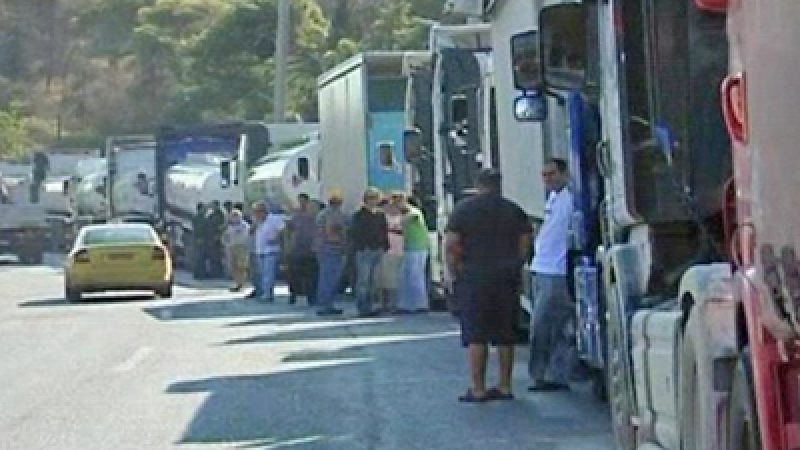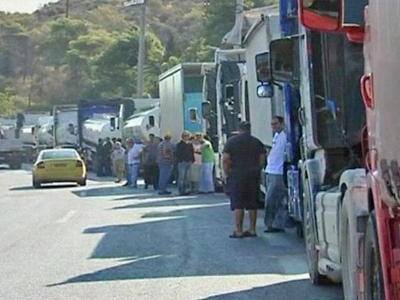
Economic Unrest Stirs Up Greece

Greeks scurry to fill their gas tanks ahead of a so-called work stoppage announced by truck drivers on Monday.
Although there are no immediate reports of shortages, lines at some gas stations stretched for hundreds of meters.
There are fears of a repeat of supply cuts similar to what happened over the summer.
That time, 33,000 truck drivers went on strike, cutting the supply of petrol and sending the country into a panic at the height of its tourist season.
The strike ended after six days, when the courts ruled it illegal.
This time, the truck drivers are calling it a ‚work stoppage‘ as they continue to oppose government plans to open their sector to more competition.
The planned strike is an inconvenience for average citizens, but the truck drivers stand by their right to protest.
[Truck Driver]:
„The government is stripping us of everything. They are making our licenses useless. They are going to force us to go find work as employees in some company. They are shutting out the real professionals from this trade. They are stripping us of our right to strike, is that democracy? This is not democracy; I don’t know what it is.“
The policy in question is part of a larger government plan to help meet the terms of a controversial EU/IMF bailout to protect the country against bankruptcy.
Meeting the bailout terms has, however, forced the country to implement various austerity measures affecting other sectors of the economy and causing various protests and unrest.
On Monday, IMF, EU, and European Central Bank officials met at Greece’s finance ministry to review the country’s economic progress before the next instalment of the bailout.
A day earlier, Prime Minister George Papandreou said Greece will meet its debt reduction targets on time and avoid further austerity measures.
 Foto: NTDTV
Foto: NTDTV


![Pressekonferenz vom Bundeskanzler und schwedischen Ministerpräsidenten Kristersson [Livestream]](https://images-de.epochtimes.de/uploads/2025/01/Thumb-Scholz-Schwedenempfang2-400x225.jpg)
























vielen Dank, dass Sie unseren Kommentar-Bereich nutzen.
Bitte verzichten Sie auf Unterstellungen, Schimpfworte, aggressive Formulierungen und Werbe-Links. Solche Kommentare werden wir nicht veröffentlichen. Dies umfasst ebenso abschweifende Kommentare, die keinen konkreten Bezug zum jeweiligen Artikel haben. Viele Kommentare waren bisher schon anregend und auf die Themen bezogen. Wir bitten Sie um eine Qualität, die den Artikeln entspricht, so haben wir alle etwas davon.
Da wir die Verantwortung für jeden veröffentlichten Kommentar tragen, geben wir Kommentare erst nach einer Prüfung frei. Je nach Aufkommen kann es deswegen zu zeitlichen Verzögerungen kommen.
Ihre Epoch Times - Redaktion